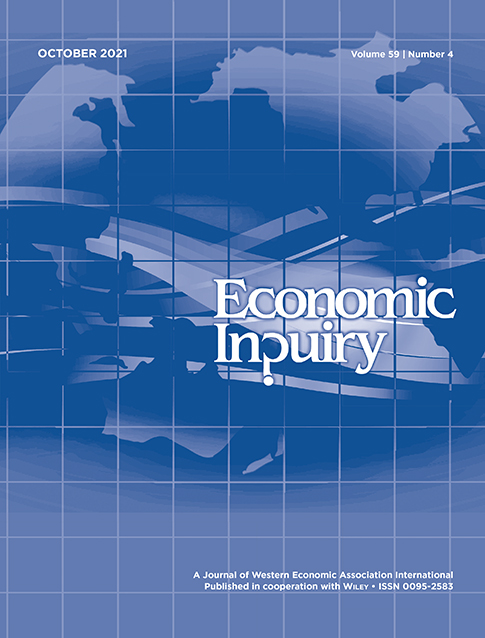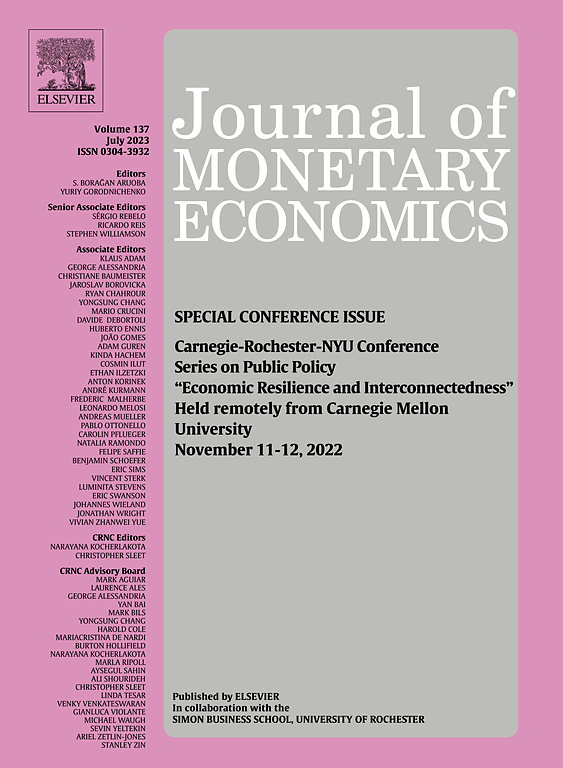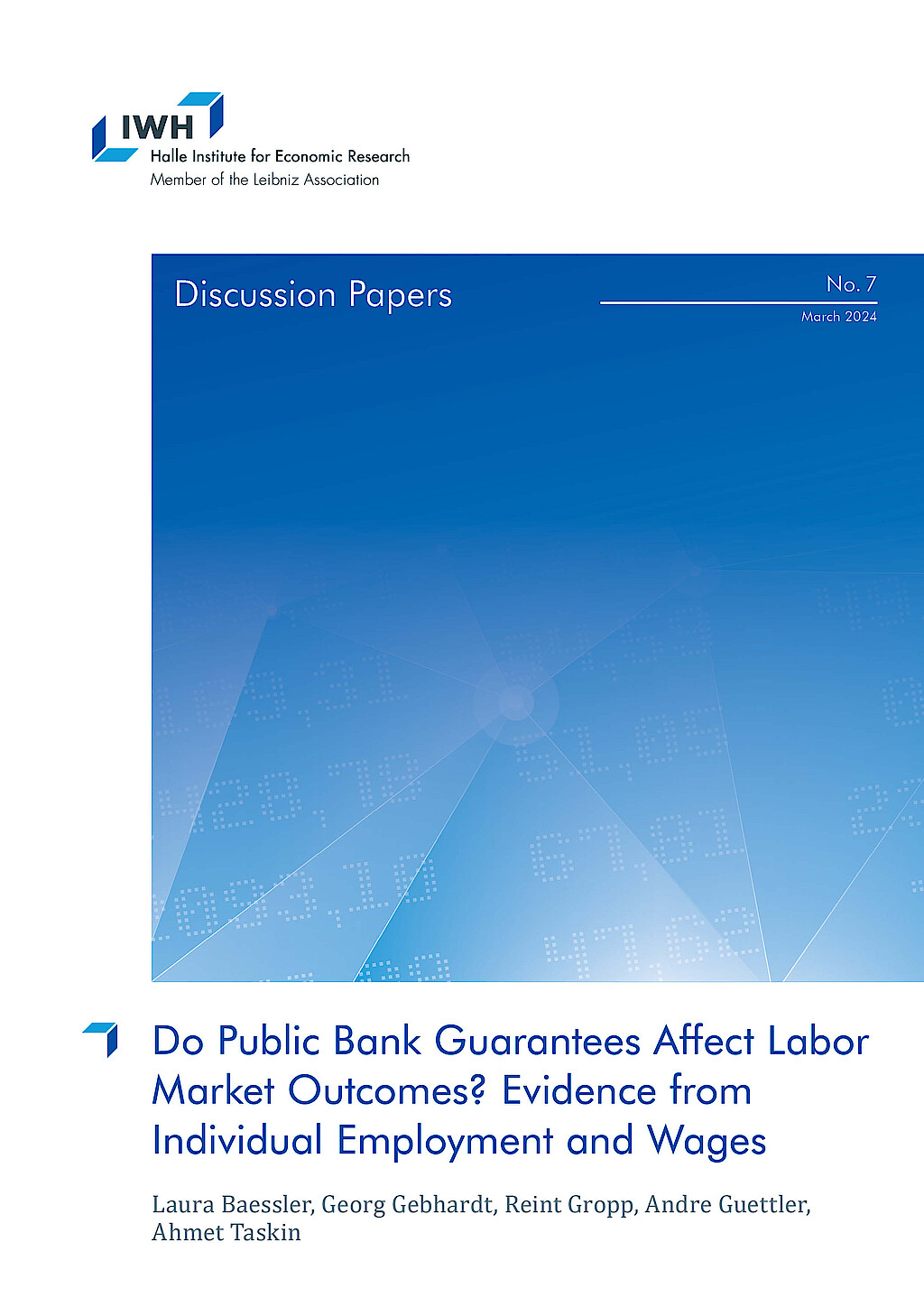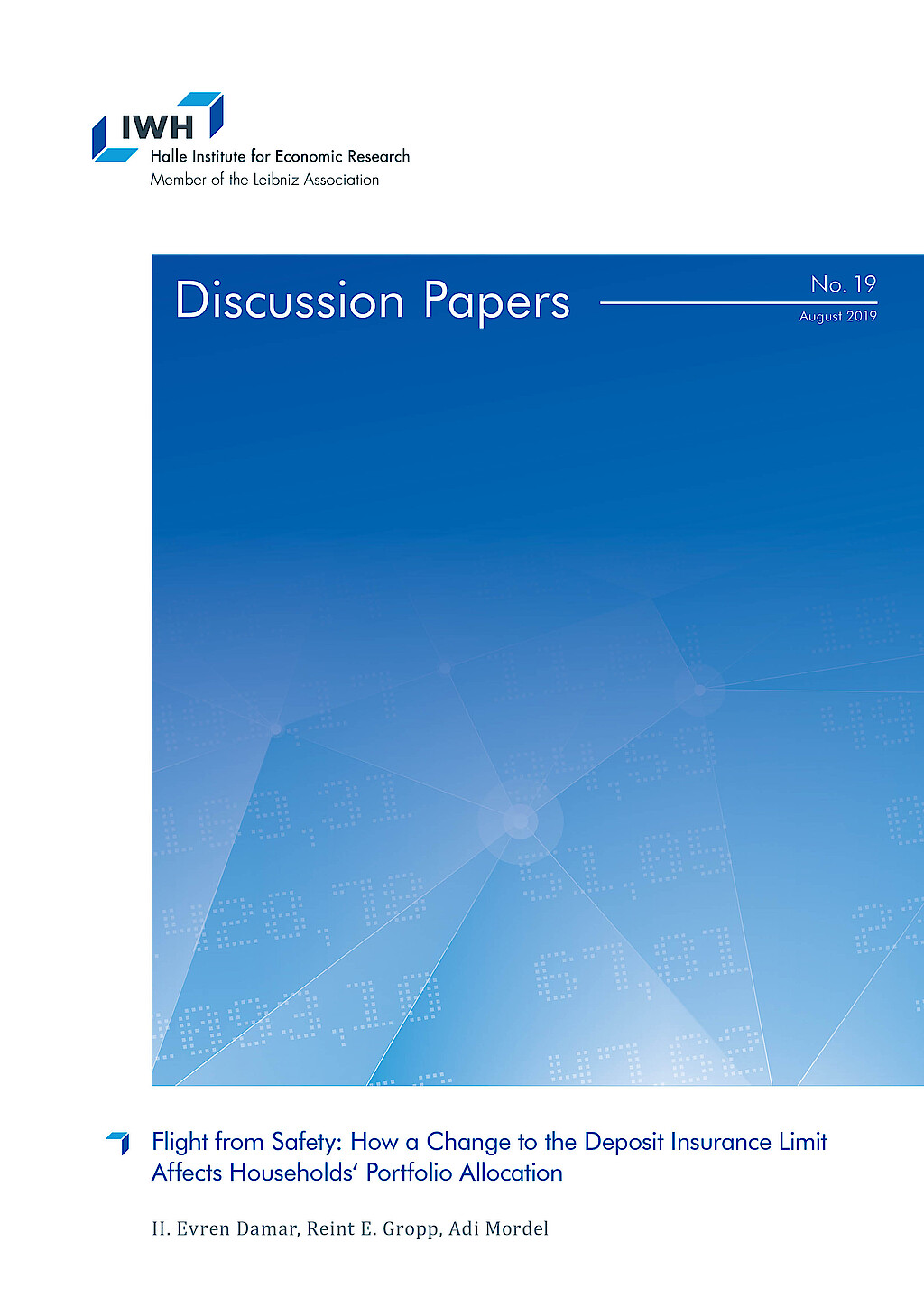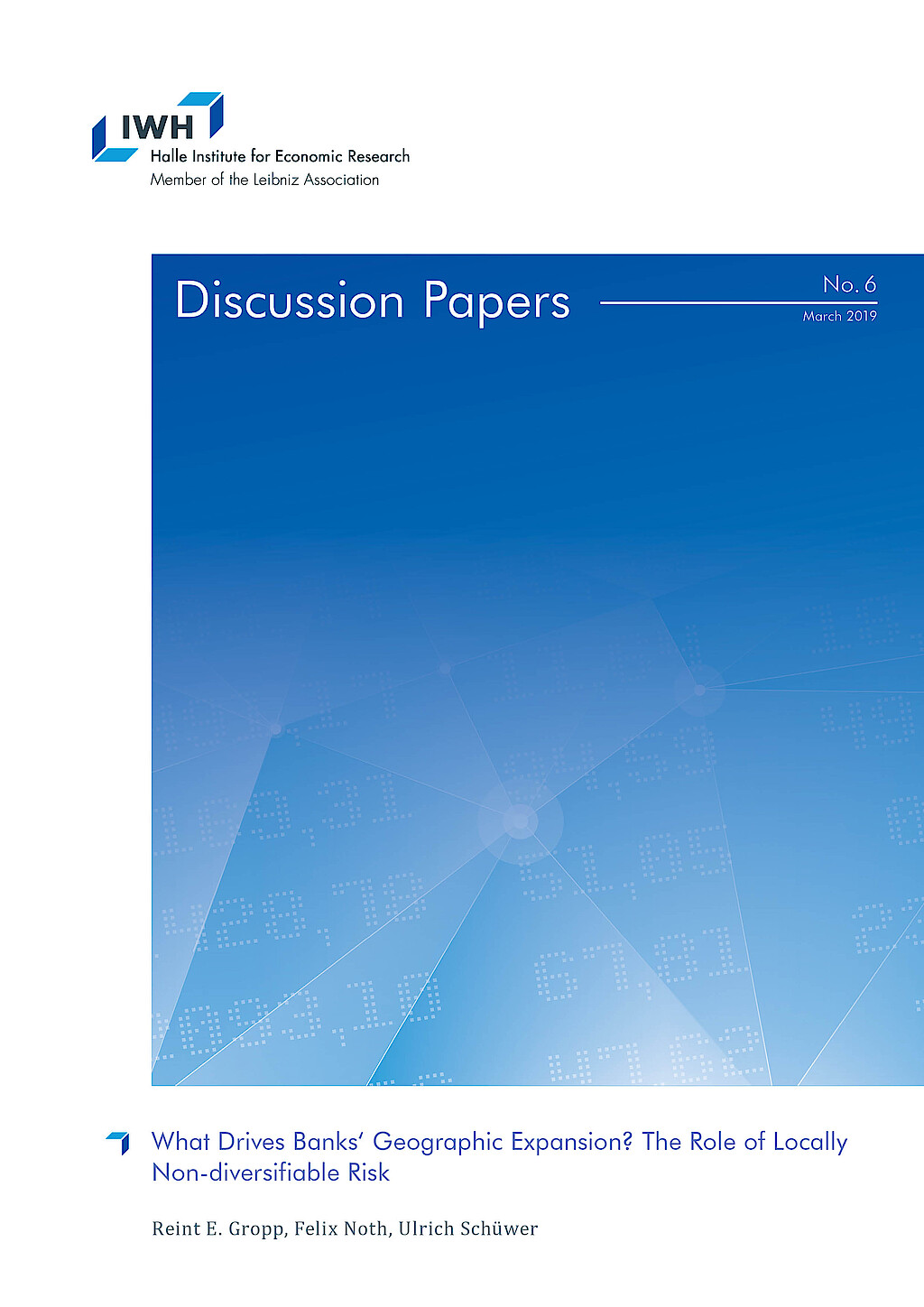Professor Reint E. Gropp, Ph.D.

Aktuelle Position
seit 11/14
Präsident
Leibniz-Institut für Wirtschaftsforschung Halle (IWH)
seit 10/14
Professor für Volkswirtschaftslehre
Otto-von-Guericke-Universität Magdeburg
Forschungsschwerpunkte
- Finanzökonomik
- Makroökonomik
- Unternehmensfinanzierung
- Geld und Banken
Reint E. Gropp ist seit 2014 Präsident des IWH und Inhaber eines Lehrstuhls für Volkswirtschaftslehre an der Otto-von-Guericke-Universität Magdeburg. Er ist Associate Fellow des Centre for Economic Policy Research (CEPR) und Berater verschiedener Zentralbanken.
Reint E. Gropp hat Volkswirtschaftslehre an der Universität Freiburg und der University of Wisconsin, Madison, studiert. Im Jahr 1994 schloss er dort seine Promotion in Economics ab. Vor seinem Amtsantritt am IWH war er Professor an der Goethe-Universität Frankfurt am Main und hatte dort die Stiftungsprofessur für Sustainable Banking and Finance inne. Zuvor war er in verschiedenen Positionen für den Internationalen Währungsfonds (IWF) sowie für die Europäische Zentralbank (EZB) tätig, zuletzt als Deputy Head der Financial Research Division.



